How The Boks won the Rugby World Cup in advance with this moving film

The Background
Apologies to English fans if this resembles salt rubbing in wounds.
In the absence of me belting out Africa by Toto in my local pub over the weekend (as there are no South African bartenders in charge of the sound system), I felt like I needed an outlet to describe the strong emotions evoked by the Rugby World Cup campaign for the Springboks over the last few months.
To set the context, South Africa first played in the RWC in 1995, just after apartheid ended.
I am sure you’ve all seen the film Invictus, or at least remember the iconic photograph of Francois Pienaar with trophy in one hand and Nelson Mandela shaking the other. Mandela was wearing a Springbok jersey and cap which, at the time, was a uniform associated with white, Afrikaans fans.
Rugby was the sport of the oppressor, and Mandela was on a world stage, backing the team and encouraging the rest of South Africa to do so too.
The Big Idea
The Boks, as they are affectionately known, launched their Rugby World Cup campaign in July with this exquisite TV commercial under the theme of #StrongerTogether, and amplified it across all other channels.
It features the Springboks’ first-ever black captain, Siya Kolisi, calling his young son back home whilst on tour.
It is an intimate encounter where Siya’s son asks him if he will see his dad play for the Springboks on TV. Siya says he will, and then asks his son to sing the national anthem with him.
For those who aren’t aware, our anthem is hugely significant as it was created post-apartheid (with the exclusion of the Afrikaans stanza). It consists of five of the official languages (we sing them all, no matter what your first language is) and is emblematic of our diverse nation.
As the anthem is sung, we see the rugby team (our most representative squad, ever) preparing for the World Cup.
And it’s a beautiful sight: blood, sweat and tears whilst running, scrumming, lifting and kicking.
We end on a crescendo as the boys stand in line on the pitch in front of a huge crowd belting out the final stanza. These are the lyrics: ‘Sounds the call to come together and united we shall stand. Let us live and strive for freedom, in South Africa our land’.
We transition back to Siya, still in his hotel room on the phone to his son, and we then fade out to the campaign hashtag: #StrongerTogether.
Nelson Mandela was trying to unify a broken country through sport back then.
Fast forward 24 years, and I am sad to say that 2019 has been a historically devastating year for South Africa.
Epic demonstrations protesting against the ongoing violence against women and femicide in South Africa have pushed the current president to declare a state of emergency. Corruption that is robbing governmental services from the poorest is still a colossal issue that hasn’t magically gone away since Jacob Zuma was pushed from power.
State-owned utility companies have been mismanaged, resulting in power cuts across the country and disrupted production. It is no surprise that ANGER has been the primary emotion expressed on social media by South Africans.
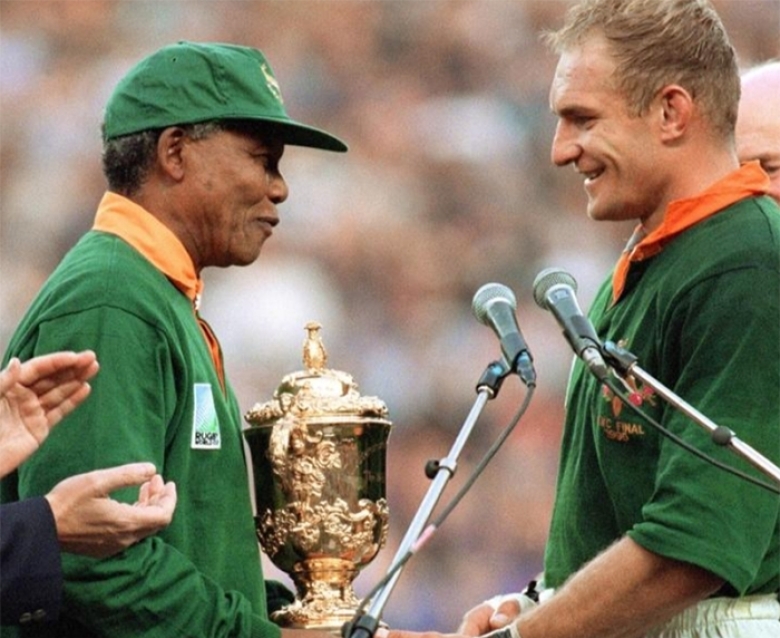
What They Did
The key message of this campaign transcended beyond a sporting slogan.
It started as the Springboks’ mantra over the past few months and has now been adopted as a statement that the nation has taken ownership of: South Africans are stronger when we come together.
Consistency and repetition helped with the adoption of the phrase: those two words trickled down through all of the Springbok’s messaging.
In interviews with media and on player’s personal social accounts, it was constantly reinforced. The hashtag was also religiously pushed on the Bok’s official social media accounts after every post (this has since changed to #ChampionsTogether after last Saturday’s victory).
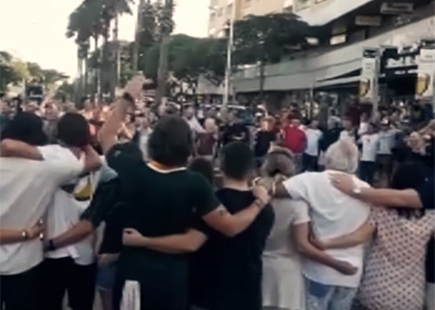
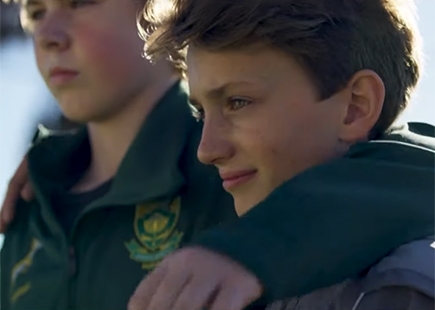
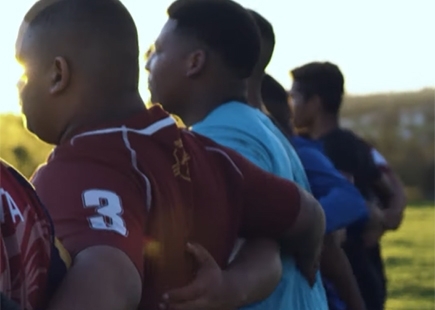
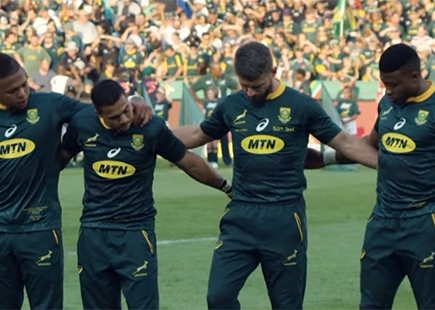
The Review
It may seem basic at first glance, but this campaign got two very important things right: it focused on Siya heavily and told a story of overcoming adversity.
One of a young boy from a township who hardly had enough food to eat some days and walked to school without shoes, who then goes on to be Siya Kolisi, the Bear. The first black Springbok captain and role model for all children.
The second ingredient that captured the hearts of the nation was simple, hope.
Reviving the hope that we saw in our parents’ eyes in 1995 when we beat the All Blacks. The hope for our country to unite and do better.
As Rassie Erasmus said in an interview: “In South Africa pressure is not having a job. Pressure is one of your close relatives being murdered. South Africa has a lot of problems and we started talking about how rugby shouldn’t be something that puts pressure on you. It should be something that creates hope. Hope is not talking about hope and saying hope and tweeting a good tweet about hope, hope is when you play well. Hope is when people watch the game and have a nice BBQ and watch the game and they feel good afterwards, no matter your differences, for those 80 minutes you agree despite disagreeing about a lot of things.”
In Hindsight
I fully acknowledge that this campaign will not transform our country overnight.
But it has shifted the sentiment from one of despair, disgust and anger online to one of hope, pride and unity.
From running campaigns at Amnesty, I fully understand that there is a time for outrage and unrest when injustices are ignored, but as Obama recently said in an interview: “If all you’re doing is casting stones, you’re probably not going to get that far”.
I can’t help but wonder what an equivalent campaign for The Roses might’ve looked like as we approach election day on December 12th…
If you enjoyed this article, you can subscribe for free to our weekly email alert and receive a regular curation of the best creative campaigns by creatives themselves.
Published on:



